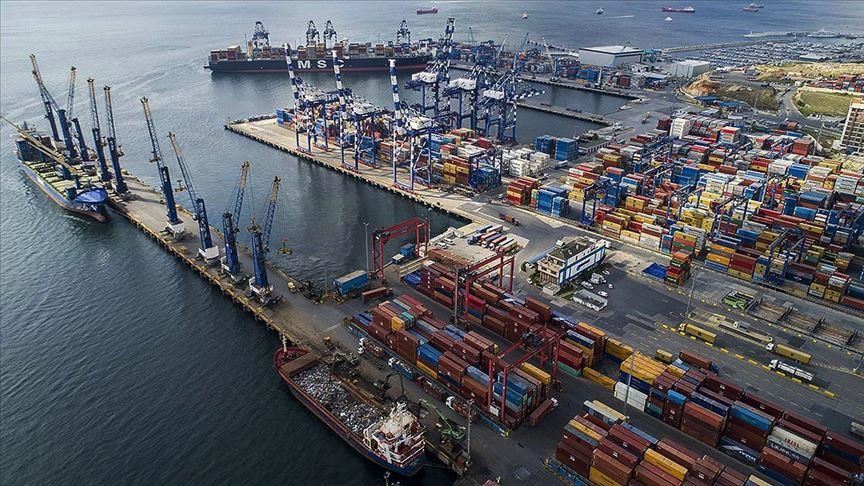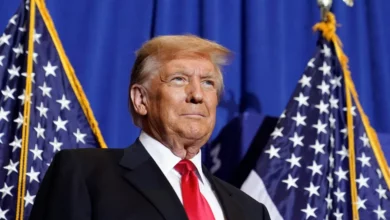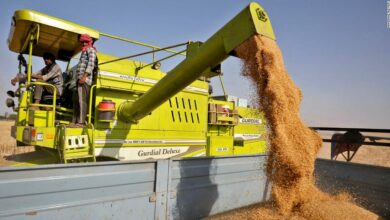The Logan may soon become the best selling car in Egypt. This sedan, which is manufactured in Morocco by the French company Renault, finally arrived in Egypt in October after months of delay. At an affordable price between LE56,000 and LE67,000, the Logan is already the best selling car in Morocco.
The Logan is the most visible consequence of the free trade agreement signed by Egypt, Morocco, Jordan and Tunisia in Agadir, Morocco in 2004. According to the agreement, any product manufactured by one of the four signatories can be exported or imported free of custom duties. But the treaty’s implementation has been rather chaotic when it comes to the car industry.
There are a variety of explanations as to why the implementation has been so haphazard. Amr Habbal, Renault Egypt sales manager, says, “The world economic crisis affected the production capacity of the Ain Sebaa construction site, which receives its spare parts from a factory in Romania.”
Sergio Marco, Renault Egypt General Manager adds, “It consequently caused industrial constraints for the SOMACA (Societe Marocaine de Constructions Automobiles) which had to be able to meet the expected volume of cars, while still exporting to Europe.” According to Marco, the company could not fulfill its commitments to both markets at the same time.
Adel Gazarine, an auto industry consultant, gives another explanation for the delay. "The Egyptian government wanted to ensure that the Moroccan Logan respected the 45 per cent integration rate that the Agadir treaty stipulates, and the Egyptian delegation insisted on visiting the Moroccan assembly line in Ain Sebaa,” he says, referring to a clause in the Agadir treaty that stipulates that at least 45 per cent of components be made locally.
Hamad Kassal, president of the Egypt-Moroccan business committee, argues that “the Egyptians wanted to make sure that the Logan was not a French product in disguise, but a Moroccan one, which is just fair.”
The Moroccan media was less balanced in its treatment of the “frictions” that erupted around the delay of the Logan in Egypt and blamed Egyptian car manufacturers for lobbying the government to protect the local economy. “It is well known in Egypt that protectionism is a cherished word and is a main concern for food, clothes, anything really,”confesses Habbal.
Two-thousand five-hundred Logan sedans have already been sold on the Egyptian market. “Each costumer has to wait about three months to get his new car,”says Renault’s Marco. “Starting in 2010, we will import 6000 Logan per year, or 500 per month, and we will keep on receiving the same number of cars in upcoming years.” According to Marco, this guarantees the quality of the finished product.
Habbal explains that they decided to import 6000 cars a year “because we noticed that this is a strategy that works on the Egyptian market. Chevrolet has imported 6000 Lanos per year for the past 10 years, and they managed to maintain the same price while capturing the market demand." Renault is determined to follow Chevrolet’s strategy.
Gazarine, the industry consultant, is also convinced that the Logan will be a success in Egypt. "The price of this car is below the ones in the same category, thanks to this custom-free import, and I bet that there will be a big demand on the Egyptian market,” he says, adding that this is a very popular range that can be easily transformed into taxis.
Habbal shares this optimism. “With this new Logan we already became the leading European brand on the Egyptian automotive market,” he says. According to Habbal, the Renault has exceeded Volkswagen since the launch of the Logan.
Marco explains, “The segment [of the car market] of the Logan sedan makes it the cheapest imported car on the market, in direct competition with Chevrolet Lanos and Hyundai Verna, which are approximately the same price. However, the Logan reaches quality and technical requirements that enable it to be sold on the European market."
According to the specialists, the main challenge Renault faces today is its production capacity, which needs to increase dramatically to export to Europe, Egypt, Jordan and Tunisia, while still producing cars for the local market. “The construction site in Morocco will increase its production from 2010 on," says Kassal of the Egypt-Moroccan business committee. Kassal also says that a new construction site in Tangier will have a productivity of 400,000 vehicles a year starting in 2015.
In addition to consumers who get cheaper cars, the current situation is most beneficial to the Moroccans, according to Habbal. But this could change. “The Korean constructors who assemble in Egypt have major chances of exporting their cars because their production capacity is very high,” he says.
Gazarine is also confident of the export potential of Hyundai, a Korean company that manufactures cars in Egypt. Hyundai, he says, is “a good candidate to be exported without customs to Morocco that respects the 45 per cent integration rate."
The only vehicle that Egypt exports to Morocco today is the locally assembled Turkish bus Temsa. Habbal is concerned about the European cars assembled in Egypt, though. “Egypt will never be able to send to the Moroccan market European CKD (completely knocked-down) cars assembled in Egypt because of the free trade agreements that exist between Morocco and Europe,” which make it impossible for Egypt to produce those cars at competitive prices.
Kassal, for whom the car industry is only one of many sectors covered under the Agadir agreement, tries to stay above the fray. He mentions the importance of the textile trade as one of the main components of the agreement, as well as the ongoing negotiations over agriculture. "Since the signature of these agreements," he says, "Egyptian exports to Morocco have been multiplied by four.”
Habbal thinks that this deal will be as advantageous for Egypt as it is for Morocco in medium-term. It will, he says, "bring mutual interest for the rest of the market. For example, a Renault committee will come to Cairo in a few days to decide whether or not to integrate the spare parts manufactured in Egypt on the Logan,” which would give a boost to the local manufacturers.
Hamad Kassal, the president of the Egyptian-Moroccan business committee, is optimistic about the Logan and trade between Egypt and Morocco in general. “The philosophy of the Agadir agreement goes far beyond cars," he says. "Today we are given the opportunity to shape an industrial integration in the south and to achieve this goal we need to create big influential groups by joining our forces. One day, those groups will be able to compete with the European ones.”




